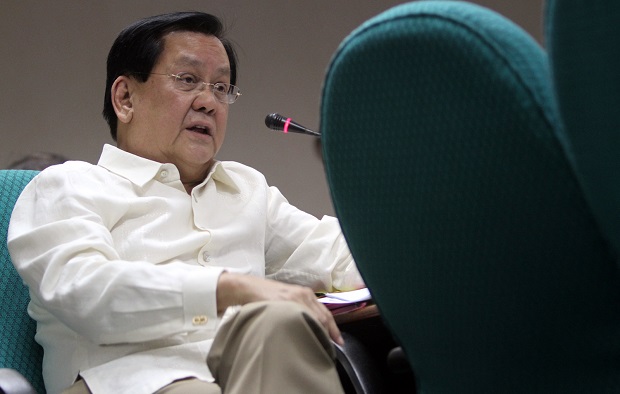It’s too late to give Aquino emergency powers–Senator Osmeña
MANILA, Philippines—President Benigno Aquino III may no longer need emergency powers to avert rotating brownouts in the summer of 2015, Sen. Sergio “Serge” Osmeña III said Thursday.
Osmeña said the Department of Energy (DOE) lacked sufficient time to acquire additional generating capacity, rendering the grant of such a provisional authority to the President moot.
Instead of the six months’ lead time to contract additional capacity to buy or rent modular generator sets, the DOE was left with only four months, said Osmeña, the chair of the Senate energy committee.
“So that emergency powers is academic. He doesn’t need emergency powers anymore,” he told reporters after deliberations on the DOE’s proposed 2015 budget.
Energy Secretary Jericho Petilla maintained there was still a need for such an authority.
Article continues after this advertisement“There’s no grid in the world that could survive without reserves,” he told reporters. “I hope you understand why I am still pushing for additional capacity, from anywhere I can get it.”
Article continues after this advertisementPetilla had hoped that Congress would grant the authority by the end of last month, leaving the DOE enough time to contract additional generating capacity.
For President Aquino has asked Congress to pass a joint resolution authorizing him to contract for additional generating capacity of 200 megawatts to 500 megawatts.
900-MW shortage
The shortage in the summer of 2015 could peak up to 900 MW, which could translate to seven or eight hours of rotating brownouts, as an offshoot of the mild El Niño, power plant outages and delays in the commissioning of power projects, according to Petilla.
Osmeña said the viable option left for the government was to tap participants for the interruptible load program (ILP).
Under the ILP, the government would compensate big businesses that would turn off their connections to the national grid, and use their own generator sets.
The generation could cost P14 per kilowatt hour, the senator said.
The difference between their cost of using their own generators and their cost of using Manila Electric Co. (Meralco) would be passed on to consumers, and this could be a minimum 4 centavos per kWh, he said.
“I am willing to recommend to the committee for the President to use the Malampaya Fund to compensate some participants in the ILP that would meet additional expenses, like transmission line connection,” he said.
Osmeña, however, conceded that this would necessitate amending Presidential Decree 910 to allow P1 billion from the Malampaya Fund to be used for this purpose.
“We will have our lawyers study that. Because to me it’s better to clarify it and put it in the law, rather than go to the Supreme Court for their interpretation,” he said.
